Jewher Ilham
This week on Small Talk, we sat down with Jewher Ilham, an emerging voice advocating the freedom of her wrongfully prosecuted father, Ilham Tohti, and the Uyghur people.

"I never planned for this. I was given no choice."
Her-Story
Having spoken at the UN General Assembly, alongside the President of the United States, testifying before the U.S Congressional-Executive Committee, and being a key-note speaker at the Genevan Summit for Human Rights, this twenty-six-year-old has been making noise for the voices left unheard.
Yet, standing for the rights of her father and the Uyghur people was never something that she had planned. 
“I never planned for this. I was given no choice. Growing up, I loved dancing, and I always wanted to be a dancer; I also loved languages and thought that I would maybe be a translator. But now, as you can see, I’m doing something completely different.”
Jewher danced since the age of four and grew up with a passion for languages. With her sights set on a life of movement and expression, politics was last on her wish list.

“I never wanted to be in anything close to politics. In fact, I hate politics because that’s what broke my family apart. Now, I’m on the other side of the world, and my dad is locked up in China serving a life sentence, while my stepmom is taking care of my two little brothers who have to grow up without a father figure in their lives.”
With a desire to share research and knowledge with the world and a disliking towards politics that both Jewher and her father shared, the current reality that they now face is anything but desired. 
“My father never wanted to come close to politics either. Even when people would ask him if he was an activist, he would say, ‘No, I’m a scholar.’ He just wanted to share his findings in hopes of developing society and making it a better place to live in.”
In 2013, upon embarking to the United States, Jewher’s father, Ilham Tohti, a nationally renowned moderate voice invited to Indiana University as a visiting scholar, was convicted and given an unprecedented life sentence for his peaceful promotion of co-existence between the Uyghur people and the Han Chinese. 
“I was planning to join my father and help him settle down in America, so I only packed for a few weeks. We knew that there may be some struggles on our way to the airport, like getting tailed or getting questioned. But we never could've imagined that things would end up how they did.”
Upon arriving at the airport, Ilham Tohti was stopped and banned from leaving the country. With Jewher being an adolescent, she was given a choice to either stay in China or take her chance and go to the United States.

“I was forced to leave, well, my father forced me. He said, ‘Take this chance; you should leave when you can.' He said, 'Look around you; this country’s treating you like this, do you really want to stay here?’ So, I left, but I had still planned to go back to China after a year. But as you can see, here I am eight years later alone and without my family.”
February 2nd, 2013 was the last time that Jewher Ilham saw her father, and in 2014, all communication was lost. 
“I still pull up his videos just to hear him because sometimes I’m afraid that I’ll forget his voice.” 10:30m
Unbreakable Bond

“I was very close with my father growing up. My parents divorced when I was very young, and even though the judge gave my mom custody, I was still living with my dad most of the time. He had two roles, he would comb my hair and cook for me, but he also had a somber and humorous side.”
The bond between a daughter and her father is truly unbreakable. Growing up with her father as her closest companion, Jewher picked up many of his traits and learned to have a sense of humor no matter what life threw at her.

“Do you want to know what he said the day after he was sentenced to life? Usually, people would be devastated, and he said, ‘It’s the first time I have had a good night sleep since I was arrested; I thought I was going to be given a death sentence, a life sentence isn’t so bad, at least I’m still alive!’ And that’s the kind of person my father is; he’s always been very positive even through the most difficult circumstances.”
It’s important in life to always seek the best in even the most testing of times. As mentioned in our interview with Roger Gabriel, the most important thing we can do in this life is to lighten up and not take anything too seriously.
In this situation, it seems nearly impossible to see the upside in such circumstances. But in accepting what is and fighting for what she believes in, Jewher has emerged strengthened from devastation.

“He put himself in this situation for people he never met. He left the Uyghur region and moved to mainland China when he was fifteen, so he didn’t really spend his time with the Uyghur community. But now he’s spending a life sentence because he wanted to protect their rights. So that’s the kind of person he is.”
Everlasting Love
On December 2019, Jewher Ilham gave a speech in Strasbourg, France marking the 6th year anniversary of her father's arrest. Not knowing if her father was alive, she called on China to release him and the innocent people who have wrongfully been jailed, having quoted, ‘This is not about fighting China, this is about protecting human rights.’
If in her position, many people would be possessed by anger and express themselves aggressively towards those who wronged them, yet Jewher comes from a place of peaceful justice and communication.

“What I also learned from my father was never to be blinded by hate. Before he was arrested, he released a voice note, and he said, ‘Even if one day I get arrested or get killed, I hope the Uyghur community will not rise into conflict over my death.’ He said, ‘If my death can resolve the hatred between the Uyghur’s and the Han Chinese, then it’s worth it.”
Choosing love over hatred and anger can be a challenging task. We so often want to protect ourselves, protect our ego’s and protect our hearts. Yet, when we act from a place of love, our actions become constructive and everlasting rather than fleeting and destructive.

“I personally don’t believe that hate can solve anything. It’s only going to bring more and more reasons for conflict and pain. Only love can solve hate, that’s what I believe, and that’s how my father raised me. He never sought revenge towards those who harmed him; he only tried to warm their hearts with love.”
We are innately attuned to the frequency of love. But somewhere along the way, we were hurt or harmed, deceived and doubted, and we began to close ourselves off to our abilities to both love and be loved.
Once we begin to accept that we can love and that we are loved, not only will we benefit from it, but the world will as well.

“So many people are filled with hate, and I understand, I really do. I have moments when I wake up, and I want to cry, ‘Why? Why me? Why my family?’ And I’ll let it out. I’ll cry, or I’ll dance or cook food, whatever makes me feel better. You need to find ways to let out your anger, but not by harming yourself or anyone else.”
It is important that we have outlets to take away our unwanted emotions and bring balance back into our lives.
As mentioned in our interview with Andria Zafirakou, having creative and physical outlets such as yoga, boxing, dance, cooking or painting, allow us to exert our unwanted anger in beneficial ways. 
“If you always treat people with love, you will receive love too. So, I’m going to do my work. I will condemn China for what they have done to the Uyghurs, but I’m also going to let them know that my family and I don’t advocate violence or hate, nor do the Uyghur people. But my people can’t express our love when you’re locking us up.”
When we shed light on the harm that others have caused, we not only give them the chance to right their wrongs, but we also allow them to change their hearts.
Stand Up
Jewher Ilham stands not only for her father’s rights but for the hundreds of thousands of souls jailed in camps, simply for being themselves.
It takes courage to stand for what we believe in, especially when it seems that all odds are against us. 
“To be honest, for a period of time, I was afraid to speak on behalf of the Uyghur community. Until 2018, I was only speaking up for my father. I thought that the Chinese government would come after me in different ways because, well, it’s happened in the past.”
With the Chinese government having already torn her father away from her, Jewher feared that any involvement in vocalizing the horrors happening to the Uyghur's would come back to haunt her. 
“Late 2017, I heard rumors, and I started reading some articles on what was happening to the Uyghur people. The camps numbers kept expanding, expanding and expanding, and I became very concerned. When my father was first arrested, I used to complain, ‘Why me? Why my family? Why?’ And I always felt alone and so powerless. And now, I’m no longer alone, but this is not the good kind of company.”
With hundreds of thousands of families living nearly identical heartbreaking realities to her own, Jewher knew exactly how helpless those affected must be feeling. In knowing this, Jewher Ilham spoke up.

“I was one of the very first people speaking up on this issue, and I had some skills and tools in communication and knew which methods to use to get people’s attention. I knew the organizations and government officials to get in touch with, but the other Uyghur’s, they had no clue. It happened as suddenly to their families as it had happened to mine. One day they would call their parents, and nobody would pick up the phone. I knew that I had to share what I knew, so they wouldn’t end up like me, not knowing for years which direction to take.”
It is heartbreaking to imagine the terror and anguish that the Uyghur community must be facing. In using her story, her knowledge, and her vulnerability, Jewher extended a hand to the countless whose realities changed in the blink of an eye.

“I always tell people who ask, ‘what should we do,’ to call their families as much as they can, because you never know. We never knew. We never knew that would be our last call. So, always tell your parents you love them, always tell your family that you love them because you really never know. Life is so unpredictable, and if you have the chance to speak with those you love, don’t think twice.”
Having only recently discovering the brutality and inhumane activity happening on the other side of the world, we couldn’t help but feel a sense of shame and guilt towards our ignorance.
But, as quoted by Maya Angelou, ‘When you know better, you do better.’

“I think the most critical step, the first step, is to learn about the issue. Many people have heard about it and have a basic understanding but being well informed is very important. You cannot advocate for a group without knowing enough about what is really going on.”
Due to the lack of knowledge and media resources released on the topic between 2013 and 2017, international voices couldn’t speak up on an issue that was not yet understood.

“There weren’t enough resources a few years ago that would allow other countries to have a voice or even form an opinion. But now there are. All it takes is people’s willingness to learn about it and to choose which angle they wish to take.”
When we lack a specific focus on what we wish to achieve, our actions often end up being less impactful. In educating ourselves on the numerous problems affecting the Uyghur's, we can choose which area to direct our attention towards in finding a resolution. 
“We can’t just ask the Chinese government to release one million people. It took them a long time to arrest them, so it’ll take just as long to release them. So, I believe that starting with smaller goals and having a directed focus will be more efficient in making an impact.”
To achieve a goal, small actions must be taken regularly to arrive at the desired destination.
In taking the steps needed towards desired change, our actions will undoubtedly create the ripples that reach both far and wide.
“Step by step, that is how you achieve your goal. And eventually, with all of the hundreds of thousands of small steps, you’ll reach the bigger goal.”
Justice
We wanted to know what the word ‘justice’ means to Jewher Ilham. 
“To me, justice means that people who don’t deserve to be in a certain place will no longer be in that certain place. My father is not supposed to be in prison. Millions of Uyghurs are not supposed to be in camps. Justice is when people are in the places that they’re meant to be, and not in the places they aren’t meant to be in.”
Best Advice

“My mentor once told me that, ‘If you keep your silence, there’s no change.' He told me that, 'If you raise your voice, things might go wrong, or they might go right, but either way, there will be a movement.’ And that is why I believe we must raise our voices.”
100% True
We asked Jewher Ilham what she knows 100% to be true, her answer...

“There’s no eternity for anything. Suffering is not eternal. There will be a parting one day or another. Even stones will disappear and return to the place from which they came.”
At TrooMe, we believe that near or far, we are all connected, regardless of our differences, religions, or ethnic backgrounds; deep down, we are all the same.
May we follow in Jewher Ilham’s footsteps, finding light in the darkness, raising our voices for truth, and knowing in our hearts that love will always win.
Sponsor Jewher’s Documentary, 'Static Noise'
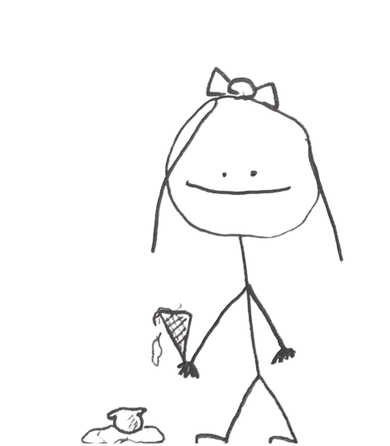
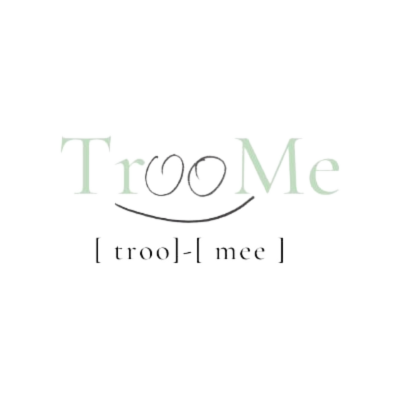
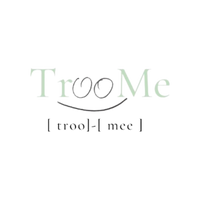
Leave a comment